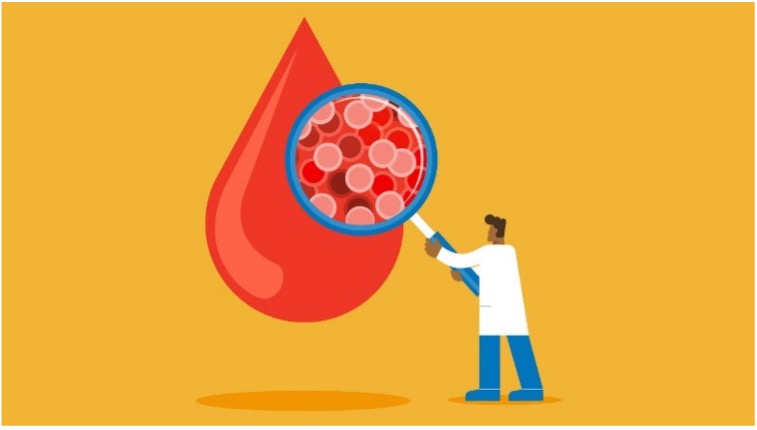Shifting the cancer screening paradigm: the rising potential of blood-based multi-cancer early detection tests
Early detection is crucial for cancer survival, yet current screenings only cover a few types. Multi-cancer early detection (known as MCED) tests have captured the attention of doctors, researchers and patients due to their potential to detect a range of cancers and guess what?…with just a drop of blood.

There are many companies developing and studying multi-cancer early detection blood tests. Unlike existing screening methods, this test targets over 50 types of cancer, including rare and aggressive ones.
Cancer on the global scale
Cancer emerges as a significant global threat, claiming approximately 1 in every 6 lives and touching nearly every household. With an estimated 20 million new cases worldwide in 2022, the burden of cancer is projected to surge by 77% by 2050, imposing greater strain on health systems, individuals, and communities
How does MCED work?

The test capitalizes on the fact that cancer cells release distinct DNA patterns into the bloodstream. By analyzing these patterns, the test can identify cancer signals with high accuracy and a low false-positive rate, and even determine where the cancer has originated. This enables doctors to tailor treatments more precisely, leading to more effective outcomes in treating the disease.
Who should consider it? Intended for individuals aged 35 and older with heightened cancer risks, such as obesity or family history, the test is also suitable for those aged 50 and above. Pregnant women or individuals with a history of cancer within the past three years are not eligible.
What cancers can it detect? While it cannot identify brain cancer due to DNA release constraints, the test covers a wide range, including leukemia, pancreatic, lung, colon, kidney, ovarian, breast, and prostate cancers.
Cancer can also come with a big bill. Detecting disease earlier can reduce the need for costly advance-stage treatments, benefiting health care systems and patients alike.
Is it a replacement for standard screenings? No, it’s not a substitute. While MCED tests hold immense promise for transforming cancer detection in the future, it is crucial to continue regular screenings until its widespread adoption.
But are they relable?
This innovative screening method could make a life-or-death difference for millions of prospective cancer patients worldwide. However, it is important to weigh the costs and benefits before using an MCED. Here is why:
Are MCED tests FDA approved? No, they have not yet received FDA approval and for that reason, it must be ordered by a healthcare provider. As MCED tests are still undergoing large clinical trials, they are not typically covered by insurance until more conclusive evidence is gathered regarding their performance as a comprehensive screening tool.
Be an extremely cautious consumer: Experts say overdiagnosis of cancer is a concern with any early detection test; just because something is found doesn’t mean it would ever have grown to be harmful.
Not every type of cancer is detected by an MCED test. It’s also possible that the test might find a cancer, but the cancer’s exact location can’t be found.
In summary, by complementing the currently available screening and diagnostic approaches, MCED tests show great promise for reducing cancer mortality by shifting detection to earlier stages. Such advancement offers hope for improved outcomes and survival rates for individuals at risk of developing diverse types of cancers, including those that often remain undetected until late-stage symptoms manifest.
Fuentes
- https://www.henryford.com/blog/2022 /08/cancer-blood-test
- https://www.emro.who.int/media/news /world-cancer-day-2024.html
- https://www.cbc.ca/news/health/ cancer-blood-test-grail-1.6591789
- https://www.mdanderson.org/ cancerwise /what-are-multi-cancer-early-detection–mced–tests–and-should-you-get-one.h00-15962101

At Best Doctors Insurance, we are proud to help our members enjoy better and healthier lives
- Office hours: 9 a.m. – 5 p.m. EST
- Customer Service hours: 9 a.m. – 6 p.m. EST
Toll Free Numbers
- U.S. collect call: 1.305.269.2521
- U.S. toll free: 1.866.902.7775
- Fax: 1.800.476.1160
- Ecuador: +593.4.400.8000
- Venezuela: +58.212.720.2102
- Madrid: +34.900.839.034
- Chile: +56.225.95.2882
- Mexico: +52.55.554.169.7210
- Peru: +51.1705.9741
- Brazil: 0.800.878.4070
- Trinidad & Tobago: 1.888.826.9630
©2024 Best Doctors Insurance. All Rights Reserved. Privacy Policy & Terms and Conditions
